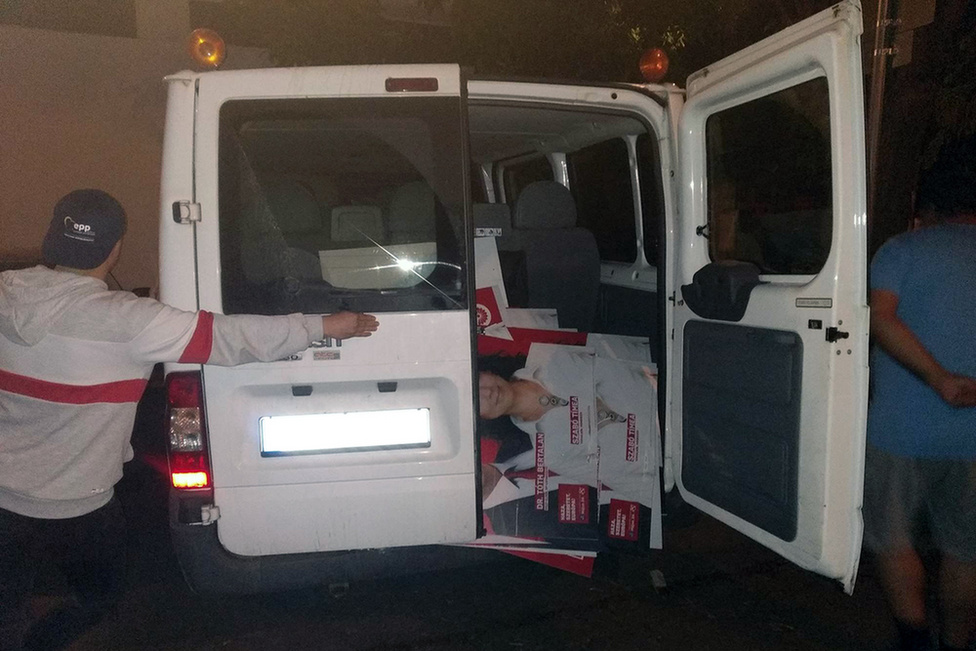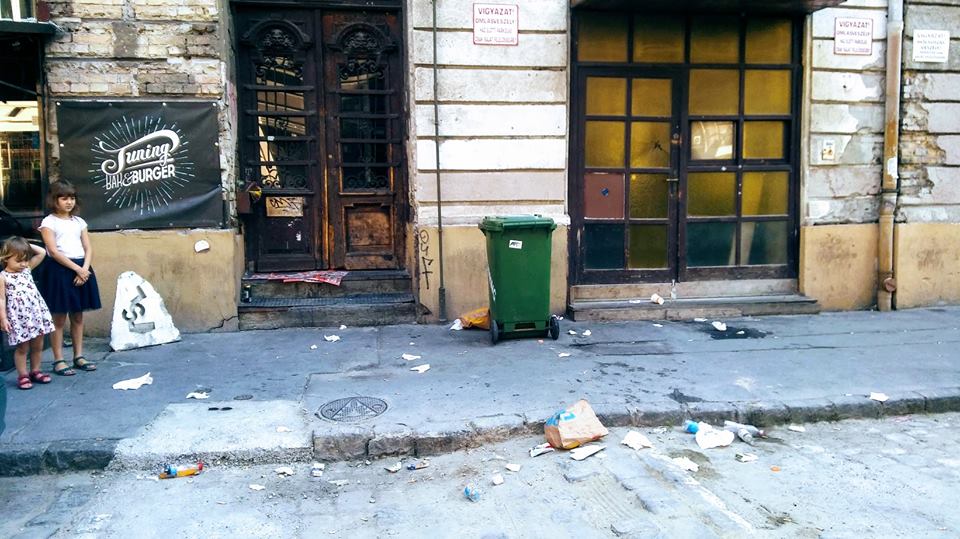Two students test positive for coronavirus in Hungary's first cases
- Stay updated on the latest news from Hungary by signing up for the free InsightHungary newsletter:
Two Iranian students have tested positive for the coronavirus, the first cases detected in Hungary, Prime Minister Viktor Orbán announced on his Facebook page on Wednesday.
The students are asymptomatic but have been quarantined at the Szent László hospital in Budapest, Orbán said. A specialist at the hospital, János Szlávik, said that the wife and girlfriend of the two students had also been placed in isolation, and that the students had both recently been in Iran, where the virus has been widespread.
At a special press conference on Thursday, Human Resources Minister Miklós Kásler said that the two students returned from Iran on February 22, and that police are investigating who they may have come in contact with in the intervening days. Orbán said at the press conference that in addition to the two confirmed infections, 24 people are currently in quarantine in Hungary and 230 screening tests are being examined in laboratories.
Celebrations on the March 15 national holiday could still be held, Orbán said, but added that if the situation in Europe deteriorates, the planned events may be cancelled.
Reports on Tuesday indicated that two other students that tested positive for the virus in Prague had previously visited Budapest. The women said they had stayed in an AirBnb in central Budapest, and visited a ruin pub and the Széchenyi thermal baths during their two-day visit.
The prime minister's senior advisor on internal security, György Bakondi, announced on Sunday that Hungary would stop admitting asylum seekers into the so-called transit zones at its southern border, saying that "there is a certain relationship between coronavirus and illegal immigration" (seeking asylum is not illegal but a right guaranteed by international law - ed.). Bakondi said the indefinite suspension is in the interests of the 321 people currently kept in the transit zones.
Internal emails reveal official censorship in state media
Internal emails obtained by Politico show that Hungarian state media officials required journalists to get permission before reporting on Swedish climate activist Greta Thunberg, EU politics, church issues and migration, and banned coverage of reports from leading human rights organizations.
Editors in state media reportedly receive a list of sensitive topics, and any reporting that involves those topics must be sent for approval from higher up. Journalists are unaware of who is responsible for approving such reporting.
Screenshots of the internal emails, which were authored by senior editors for MTVA, the organization which oversees state media outlets like news wire MTI and several television and radio stations, were sent anonymously to Politico and their authenticity has been confirmed.
The emails also confirm previous reporting by liberal daily Népszava that state media employees were directly ordered not to mention reports published by NGOs Amnesty International and Human Rights Watch.
Greta Thunberg reacted on Twitter to the article, writing that such lists "should never exist. But since they do, I guess it's an honour to be on them."
After the publication of the Politico article, the press department of state media organization MTVA released a statement defending its practices:
"Once again, a coordinated press attack has been conducted - this time with foreign assistance - on the public media. The Hungarian journalist for Politico, which advertises itself as an independent news source, published an article today prying into the editorial principles of the [Hungarian News Agency] and crying censorship over an internal correspondence they received. At the same time the article was published [...], fake news sites Azonnali, Index and 24.hu sent questions to the public media citing the Politico article. Their coordinated attack is aimed at stirring trouble around the credible and level-headed relaying of information, petty revenge after public media exposed the fake news sites for creating panic about the coronavirus last week. [...] Public media follows the news editorial policies of the BBC. By attacking us, they are attacking these principles in general."
Legal double standard alleged over two cases of campaign poster theft
A legal debate over judicial double standards has erupted after the son of an MSZP politician was criminally charged for removing three Fidesz campaign posters in Sopron, while charges against Fidesz activists in Győr have been dropped for a similar but more serious infraction.
As Index reports, the events unfolded last September during the municipal elections campaign when László Kránitz Jr. (20), the son of a local MSZP politician, was caught by police while spray painting Fidesz campaign posters in Sopron. After being approached by police, he admitted to having three campaign posters in the trunk of his car. He was brought to a police station for questioning and was held until 6 a.m. the next morning before being released. The university student was unable to call a lawyer and was not informed that he would be charged with a crime.
Kránitz Jr. is being charged with criminal theft for the removal of the posters, which have a combined value of Ft 4,650 (EUR 13). According to Hungarian law, however, a misdemeanor only becomes a crime if the value of the damaged or stolen object exceeds Ft 50,000 (EUR 148). Additionally, Kránitz Jr. testified to police that he did not intend to take possession of the posters, but to dispose of them in a recycling bin. According to law, the crime of theft can only be established if the suspect intended to take possession of the object.
The suspect's lawyer has requested a review of the case by Prosecutor General Péter Polt, arguing that the charges against him are not compatible with the law. Kránitz Jr. argues that he does not expect special treatment, only a fair procedure, and he and his lawyer believe that the authorities have shown bias against him because of his father's status as an opposition politician.
"I know I made a mistake, but I would have never dreamed that we'd be here and that this could happen in Hungary," he said. "I'm pretty sure that [...] I wouldn't be a suspect if I had a different name."
Kránitz Jr. and his lawyer argue that a legal double-standard is at play, demonstrated by the dropping of criminal charges last summer in Győr after police apprehended Fidesz activists in possession of 36 MSZP campaign posters in their vehicle. The Győr prosecutors office dropped the charges after determining that the intent of perpetrators, who had stolen posters with a total value of Ft 44,784 (EUR 133), had not been theft, but rather to place the posters in a recycling bin.
Prosecutor General Péter Polt told Index that his office is not authorized to review the case, while the prosecutor's office of Győr-Moson-Sopron county said it is reviewing the contradictory court decisions.
Party District to introduce midnight closure rules
The Seventh District council in Budapest has approved a raft of regulations that aim to cut down on noise and litter in the "Party District".
Bars will now have to close after midnight unless they fulfill a number of strict criteria, including making their restrooms available to non-guests, prohibiting drinking on the street, installing a device to keep live music below a certain volume, complying with maximum capacity regulations, and cleaning the sidewalk in front of the establishment at least once a day.
Establishments that fulfill the criteria will receive a one-year permit to remain open after midnight. Non-compliance could result in warnings, fines, temporary closures, and revocation of the permit.
The district will also install posters in the area to discourage party-goers from littering and engaging in vandalism.



